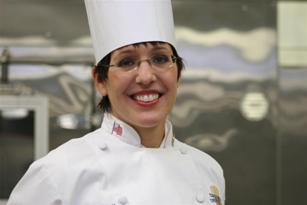Front of House: Service Philosophies, a Foundation for Success
05 April 2010By Audrey Heckwolf
 Why is something so beneficial often overlooked? Encourage your students to develop their own service philosophies that they can use as a guide in their careers.
Why is something so beneficial often overlooked? Encourage your students to develop their own service philosophies that they can use as a guide in their careers.
Here is a riddle: What is the one thing that hugely successful service companies have in common that is often overlooked? Sure, they all have an enormous bank account, excellent branding and a honed business sense, but that is not what got them their success. The answer is an excellent service philosophy.
Successful companies lay their foundations for future success by utilizing well-established service philosophies. A service philosophy is more than a mission statement; it contains a clear vision for the company’s service standards. It begins with the values, beliefs and attitudes of the business. An excellent service philosophy will guide the day-to-day decisions related to service. It will create parameters around what staff members are empowered to do, how the company views their guests, and how they want to be remembered.
As culinary educators, especially service educators, we, too, often forget the importance of training our students on the importance of service philosophies. Next time you find yourself with a new group of students, ask the class how many of them are employed at places that have established service philosophies. Then ask them how many know what the philosophies are and use them as a guide in their daily work.
I ask these questions in every service class I teach, and it still amazes me how few students work in hospitality businesses that have no service philosophy in place. If I have two students who use a working service philosophy where they work, it would be an improvement. This made me wonder, why is something so foundational and beneficial often overlooked? As educators, let us begin to make a change and impress upon our graduating culinarians the importance of a working service philosophy.
To be a valuable tool, a service philosophy should state the values and beliefs agreed upon by those who will live it. Owners, managers, servers, cooks and dishwashers need to be included. All employees need to feel as though they have a vested interest in guest satisfaction. When a service philosophy is created as a collaborated effort, those on the service team are more likely to value the philosophy and want to exemplify it in their daily activities. In essence, an effective philosophy should describe how management and employees feel about guests, guest experiences and guest satisfaction. Service teams need to appreciate the relationship between the service philosophy and their understanding of everyday practices. If a service team cannot clearly relate the philosophy to their everyday actions, it will fail to act as a binder keeping the team together.
Encourage your students to develop their own service philosophies that they can use as a guide in their culinary careers. Teach them that philosophies can evolve over time, but the importance is in understanding the value of a working service philosophy. They should be seen as “living documents,” reviewed annually so that they remain current and valuable.
Have students begin with questions such as what do they believe in? Why do they have those beliefs about guests or service? How can they bring their beliefs into practice? How can they train their employees and include the service philosophy in several aspects of the day-to-day business? Guide your students as they begin to reflect on these questions as a starting point to creating their own service philosophies.
We need to view service philosophies as mission statements for our dining rooms and kitchens. The key is that we impress their importance on our students as they graduate and embark on their service journeys in the hospitality industry. An effectively written philosophy shapes a company’s identity when it comes to guest service and creates a culture of accountability and continual improvement. The benefits are immeasurable: teamwork, guidance toward conflict resolution, increased employee moral and job satisfaction and, oh yeah, let us not forget—success.
Audrey Heckwolf teaches advanced tableservice as well as the personal- and private-chef curriculum at The Secchia Institute for Culinary Education at Grand Rapids (Mich.) Community College.
